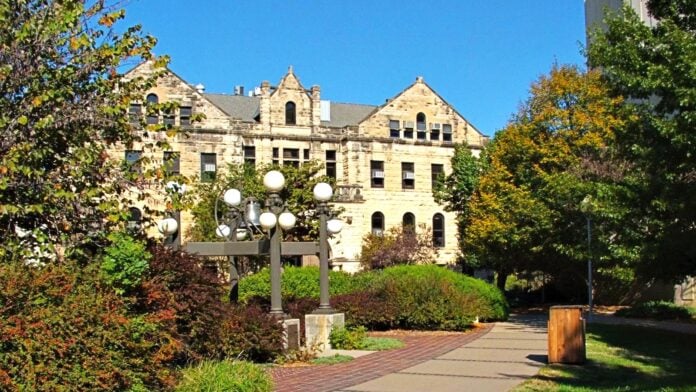In an unexpected and abrupt decision, the new presidential administration has effectively shuttered the U.S. Agency for International Development (USAID), locking employees out of their offices and halting ongoing projects. The implications of this move stretch far beyond bureaucratic reshuffling—it puts at risk critical research and economic stability in Kansas, particularly at Kansas State University (K-State).
USAID had pledged up to $50 million over the next five years to advance research in “sustainable intensification,” an approach focused on increasing crop yield without expanding agricultural land use. This research was not just an academic exercise; it was a vital step toward global food security, resilience against climate change, and sustainable agricultural practices that directly benefit Kansas farmers and the state’s economy.
Economic Fallout for Kansas and K-State
Kansas State University had already proven its expertise and dedication, having managed a decade-long, $75 million initiative to study climate adaptation, soil fertility management, and resource use. The new USAID grant promised to extend and expand that research, with potential total funding of $175 million over two decades. With this funding now in jeopardy, the economic consequences for K-State and Kansas as a whole could be severe.
Losing this funding would mean an immediate loss of jobs for researchers, faculty, and graduate students involved in these projects. The initiative supported 120 organizations, 150 researchers, 275 students, and 40,000 farmers. The absence of funding could lead to reduced enrollment in K-State’s agricultural programs, layoffs of faculty and research staff, and diminished resources for students.
Beyond the university, Kansas’s agricultural economy is at stake. Farmers and agribusinesses benefit directly from the innovations generated by K-State’s research. Advancements in sustainable farming practices, climate adaptation, and soil fertility management lead to higher yields and lower costs for farmers, directly impacting the state’s economy. Without continued research, Kansas farmers may struggle to remain competitive in an industry that increasingly relies on scientific breakthroughs to maximize efficiency and resilience.
A Blow to Local and Statewide Agriculture
Kansas agriculture plays a vital role in the state’s economic health, contributing billions to the economy each year. The insights gained from K-State’s sustainable intensification research are not theoretical—they are practical applications that help Kansas farmers adapt to extreme weather, manage resources more efficiently, and increase their profits. If the research is discontinued, local farmers could see stagnation in technological advancement, leading to decreased productivity and financial losses.
The sudden halt to USAID funding may also affect Kansas’s broader economic ecosystem. The state’s agribusiness sector—including equipment manufacturers, seed companies, and agricultural service providers—relies on continued research and innovation to drive industry growth. If progress stalls at K-State, Kansas risks falling behind other states and countries that continue investing in agricultural advancements.
A Call for Immediate Action
K-State and Kansas leaders must act swiftly to address this funding gap. Whether through state funding, private partnerships, or lobbying for federal reconsideration, finding alternative sources of support is crucial to preserving the state’s leadership in agricultural research.
Kansas cannot afford to lose this investment in its future. Agriculture is the backbone of the state’s economy, and without continued research at K-State, the entire industry could face setbacks that impact jobs, business growth, and long-term sustainability.
For now, the future of agricultural research at K-State remains uncertain, and the people of Kansas—farmers, researchers, and business leaders alike—are left waiting to see if this administration will recognize the economic and strategic importance of sustaining these vital programs.





